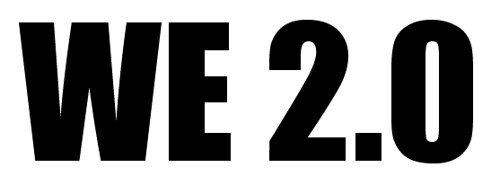Two years ago I finished a two year stint as Clerk of my Monthly Quaker Meeting. We’re a large meeting in a university town and among our members there is a wide range of beliefs. There are Catholics who attend our meeting because of the peace and community they find here, Jews, Buddhists, fallen Lutherans like myself… there are lots of different backgrounds represented. We have among us so-called “birthright” Quakers and “Quakers by convincement.” I belong in the latter group. We are largely descended from European white people. Only a handful of those of Asian or African descent can be found among us, and no indigenous people to my knowledge.
Our meeting has been described as a “mystical universalist” gathering, and when they named me Clerk, I’m not sure they knew that they were handing over the key to the meetinghouse to a foul-mouthed atheist. But the inner light shines out from everyone through a variety of filters, each unique, if shaded by particular belief structures and other trappings of the mind. I am grateful to be among friends, people who gather in mindful contemplation of truth and love seeking only clarity and goodness and light.
Now I have the opportunity to serve on a clearness committee for marriage. I’ve been asked to review the Pendle Hill pamphlet on marriage clearness committees and it doesn’t seem to be online.
[…and later] Oh boy. It’s getting deeper. After an exhaustive search, I find that there is only one Pendle Hill pamphlet that seems to be relevant… number 308.
Am I just grumpy, or would it have been a reasonable expectation for the person who is convening Barb and Amy’s clearness committee to have given us a clue that she isn’t asking us to read some generic pamphlet about clearness committees for marriage, but rather Marriage - A Spiritual Leading for Lesbian, Gay and Straight Couples?
Indeed, I am led to further inquire regarding the title of this pamphlet… what kind of a benighted bow to correctness was required to include “Straight Couples” in this title? Well, you can’t judge a book by it’s title, I guess, so i’ll have to read it and see if my judgmentalism is supported. But, simply to summarize…
- The convenor of this committee requested that I read the Pendle Hill pamphlet on marriage. There were dozens of appropriate ways that she could have led me toward the pamphlet in question. If “lesbian,” “gay,” “queer,” or “homosexual” were words too freighted for her to utter, perhaps she could have delicately pointed toward the pamphlet that addresses “same gender” marriage.
- My reaction may be over the top, but I started this morning as a seeker regarding the marriage clearness process. Researching that process, I’ve found precious little on-line to support the work of a committee. The pamphlet I’ve been pointed toward will be in the Meetinghouse Library, I think. I wish it was online. The assumption that I would know that there is a pamphlet reflecting on the pair bonding through marriage of same gendered couples and that specifically this would be the pamphlet I should be looking for is a matter of concern to me.
The Quaker clearness process is an opportunity to shine light on a matter of concern. A couple’s commitment to marry is a huge concern for the couple, of course. Preparing them and the meeting for that marriage, putting the marriage under our care, is I think what the clearness committee is about. Sitting together in silent worship, meditating, then inquiring, asking questions of each other and answering, sharing the warmth of community, finding a balance between the informal friendship we share and the sober responsibility sharing promises and intentions has got to be what this is about. What are some of the questions other clearness committees have found rewarding? How have committees introduced the couple to the community and assured a continuing nurturance that makes meaningful the phrase “married under the care of the meeting?” Will I find answers to these questions and others in the pamphlet?
I’m off to the Meetinghouse Library to see if i can find it.
[Update - I did find the pamphlet, and I read and I reflect further in this post.]

 I’m off this afternoon to San Francisco to attend
I’m off this afternoon to San Francisco to attend 




 Or maybe I have that wrong.
Or maybe I have that wrong.




